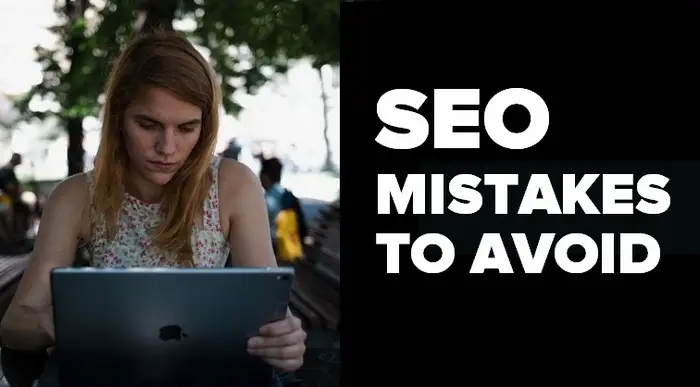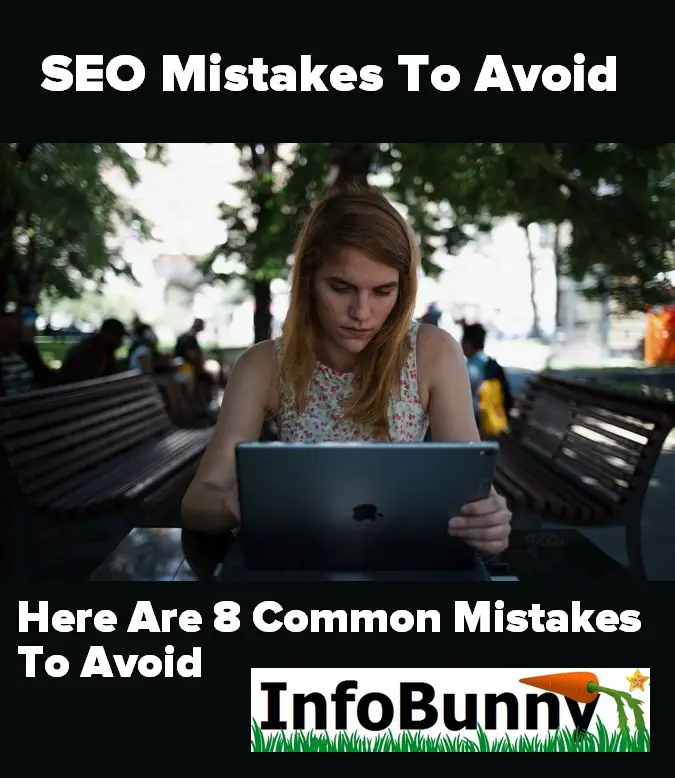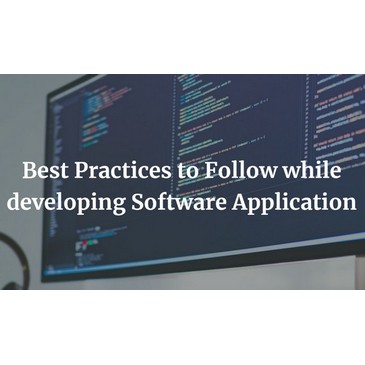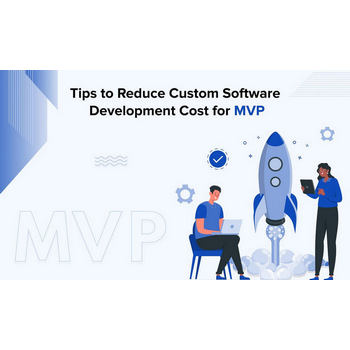In this new article, we are talking about SEO mistakes to avoid.
Backlinking, guest posting, duplicate content. It is all covered and more.
Let’s get started!

Odds are you’re fully aware of the importance of SEO and its impact on your website’s search engine rankings.
In fact, you may have already decided that 2019 will be the year you really start to improve your SEO and get your website up those rankings, which is great.
But good SEO nowadays isn’t just about doing the right things, it is about avoiding mistakes as well.
That is complicated by the fact that there are a lot of misconceptions floating around.
Some of which could hurt your rankings if you aren’t careful.
If you want to know exactly what SEO mistakes you need to try to avoid in 2019 you’re at the right place, and we’re going to list them for you.
8 Common SEO Mistakes To Avoid
Not Properly Tracking Performance
If you want to improve your SEO, you need to properly track your website’s performance.
That should go without saying, since if you don’t track it, how will you know whether your website is doing better or worse?
But when you do track your website’s performance on search engines, you should make it a point not to get too caught up in the rankings.
Sure it is nice if you’ve ranked well for certain keywords, but the main metric that you should focus on is traffic.
At the end of the day, that is what you want from search engines.
And there’s no point ranking well on any keywords if those phrases don’t bring in traffic.
In short, you should track your website’s performance on search engines thoroughly, but always ultimately view it in terms of the traffic that it generates.
Based on the traffic you can determine your ROI, and make improvements using that as a starting point.
It would be a good idea to come up with specific Key Performance Indicators (KPI) that you can use to measure your progress as well.
Building Links With Optimized Anchors
For years on end, one of the most popular ways to build backlinks was to acquire links with optimized anchors.
A link with an optimized anchor is basically a text-based link that contains the keyword that you want to rank on.
For example, if you were targeting the keyword ‘SEO guide’, you’d use that as the anchor.
Not so long ago Google updated its Link Scheme document and specifically singled-out optimized links.
Per the document, ‘links with optimized anchor text in articles or press releases distributed on other sites’ are now listed as unnatural links that may violate Google’s guidelines.
Going against Google’s guidelines is never a good idea.
So it is best to simply stop using links with optimized anchors in 2019.
It is unlikely that a few isolated anchors that just happen to be optimized will result in a penalty.
But overusing them will probably eventually land you in hot water, or not provide any benefits at all.
If you want to be safe you should stick to links that are contextual or describe the website, such as the brand name, unanchored links, and so on.
Publishing Spammy Guest Blogging Is A Big SEO Mistake To Avoid
Another popular SEO strategy that has come under the microscope over the last few years is guest blogging.
Back in 2014, there was a bit of panic when it the head of Google’s Webspam Team Matt Cutts published a blog post stating that guest blogging was done.
He later clarified that he was specifically talking about guest blogging that was ‘spammy’ and done solely for SEO.
While guest blogging itself is still going strong and is absolutely a legitimate SEO strategy, the manner in which it is carried out is what really matters.
That is especially true now that Google has also fired a warning shot at optimized anchors, which were prevalent in guest blogs.
The long and short of it is that you may want to rethink your approach to guest blogging in 2019 if you are:
- Publishing low-quality guest posts.
- Adding links with optimized anchors.
- Writing irrelevant content in guest posts.
- Buying guest posts in bulk.
Any of the above behaviours could result in penalties at some point in the not too distant future and are best avoided.
However, if you are legitimately creating and publishing useful guest posts and getting a link out of it then that’s fine, and will give you a good SEO boost.
Ignoring Long-Tail Keywords
Ignoring long-tail keywords is one of the most common mistakes that beginners make when they first start out with SEO.
It is easy to see the reason behind this mistake:
Most beginners look at the search volume of keywords and immediately want to target keywords that have the highest numbers.
What they don’t realize is that popular keywords have tons of competition, and ranking on them is really difficult, if not impossible.
People with more experience with SEO realize that, and look at long-tail keywords as ‘low hanging fruit’ that can get them lots of good traffic more easily.
While ignoring long-tail keywords has always been a mistake, it is a mistake that you especially don’t want to make nowadays for one big reason: Voice search.
The growing popularity of AI digital assistants has led to a spike in the number of voice searches.
Unlike conventional searches, these very often use longer phrases – which is leading to an increase in the volume of searches for many long-tail keywords.
The bottom line is simple: Make sure you target a good mix of long-tail keywords and be aware of the potential of traffic from voice search.
Poor Page Speed
Page speed has been an important ranking factor for some time, and it is high time you made sure that yours was up to scratch.
The good news is that if you’re prepared to put in the work, it is now easier than ever to improve the page speed of your website.
All you need to do is use Google’s PageSpeed Insights tool to analyze webpages, and it will point you to improvements that you can make to them.
Keep in mind that making your pages load faster particularly on mobile can benefit far more than just your SEO.
Every second that your page takes to load reduces the number of views that you get, affects customer satisfaction, and results in fewer conversions.
And that is a bad user experience and bad for your sites traffic and income.
Some of the common steps that you can take to speed up your website include:
- Reducing the number of HTTPS requests
- Compressing images more effectively
- Minifying web code
- Optimizing JavaScript
- Selecting the right web host
The exact steps that it would be best for you to take will depend on how your website is set up, which is why it is best to use PageSpeed Insights as a starting point.
Join the conversation - In this new article, we are talking about SEO mistakes to avoid in 2019 and beyondClick To TweetToo Many Broken Links Is A SEO Problem
Have you ever clicked on a link on a website only to be confronted by that typical 404 error page?
Do you remember how annoyed you felt?
It may not be surprising but as annoying as it was for you to encounter a broken link, it is just as annoying for search engines.
Broken links waste time and result in bad user experience, both of which search engines dislike.
While an isolated broken link isn’t going to ruin your SEO, too many of them will definitely start to affect you in search.
That is why you need to make it a point to check for broken links and fix them.
Keep in mind that broken links can be either internal (i.e. to other pages on your website), and external (i.e. to other websites).
Ideally, you should track down both types by running one tool such as Broken Link Checker.
There are also plugin options if you are running on self-hosted WordPress.
When you run your tests don’t be surprised if you find a lot of broken links, especially on older websites.
Over time websites tend to accumulate many of them as older pages are retired and deleted, or the site structure is changed.
If you can you should try to regularly check your website for broken links and fix them, so that they never get the chance to pile up.
Not Taking Advantage of Videos
Content is king when it comes to SEO, and that includes video content as well.
In fact, videos have tremendous potential to help boost your SEO due to how engaging they can be.
Simply put videos are able to engage viewers in a way that no other type of content can.
And that is why they often provoke reactions.
More importantly, they get shared a lot – which will definitely give your SEO a leg up.
If you want to be able to compete on search engine rankings, you should start to take advantage of that potential.
To do that you need to not only start to create and publish video content but also make sure it is optimized.
Some of the ways that you can improve your video SEO specifically are to:
- Publish transcripts alongside the video
- Use structured data to provide search engines with additional information
- Ensure the page speed is good
- Only publish one video per webpage
When you publish videos you should make sure they are in the right format.
If you want you can use Movavi Video Converter to do that, as it is an easy-to-use movie converter that supports practically all the formats that you need.
On top of that, it will let you prepare your videos in other ways, by compressing them, adjusting their size, adding text, enhancing the quality, and more.
Publishing Duplicate or ‘Thin’ Content
Duplicate content was once common practice, but nowadays search engines either ignore or penalize it.
As a rule, you should steer clear of duplicate or thin content of any kind.
This includes articles that may be ‘spun’ using software.
Most types of duplicate content are very quickly identified and can lead to search engines downgrading your website’s overall rankings.
Instead of duplicate content, you should focus on producing high quality and original content for your website.
Despite the current focus on long-form content, short-form content can have value as well, so it is best to have a mix of both.
Keep in mind that attempting to over-optimize your content with keywords is not a good idea either.
Join the conversation - Here are 8 of the most common SEO Mistakes to avoid. Did we miss any? Click To Tweet
8 Common SEO Mistakes To Avoid – Final Words
Now that you know what not to do (and a bit about what you need to do as well) – you should be able to start strong and improve the right parts of your SEO and avoid the most common SEO mistakes
Keep in mind that search engines are constantly changing their algorithms.
However, and there is no guarantee that Google and other search engines won’t make further changes this year.
At the end of the day that is why it is important to align your focus with that of search engines and try to provide visitors with good content that is relevant to what they’re looking for.
If you can do that, no matter what curveballs are thrown your way, you should still end up ranking well.
That’s all for now!
So have we missed any other common SEO mistakes that are easily avoided?
Let me know in the comments section below.
Make sure that you subscribe to the comments so you are notified when I reply.
Regards
Dexter
Related Articles
Never do keyword research again. Do this instead
Mobile SEO Guide 2019 – The Ultimate Guide











Tim Halloran
Great post thanks for sharing your knowledge. It’s tough building a business of the constantly shifting sand of Google updates. I’ve never done guest posting but maybe I should? I’ve always concentrated on creating long tail targeted articles and offered as much value as I possibly could. It’s a long term strategy I guess!
Nikola Roza
Hi Dexter,
great guide, as always. I think that one of the easiest quick SEO win is fixing 404 errors. Because those broken links leak Page Rank which is crucial for ranking higher in Google.
And any decent-sized website is bound to have dozens, if not hundreds of dead links.
So fixing them alone should give a nice bump in the rankings, which is amazing considering it’s literally a 5m job with Broken Link Checker plugin.
Cheers!
Nikola Roza recently posted…7 Wealthy Affiliate Complaints and Their Solutions- Learn how to Pummel your Way to Success
Kyra Rodriguez
Great post! Maybe not taking advantage of videos is my mistake. But, will take note in everything you’ve mentioned.
Digital roy Academy
These article is truly helpful. Thank you 🙂